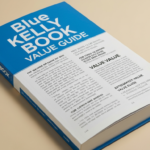In recent years, the phrase Isotonix lawsuit has been popping up all over the internet — from forums to news reports and health blogs. Many supplement users and distributors are curious about what’s actually happening behind this controversy. Is it a real legal issue or just another overblown online rumor?
The Isotonix lawsuit revolves around claims related to product marketing, business practices, and the legitimacy of the company’s multi-level marketing (MLM) model. To understand why this case has sparked such a buzz, it’s important to explore what Isotonix is, where the lawsuit began, and what lessons consumers can take from it.
In this article, we’ll break down everything you need to know about the Isotonix lawsuit — in clear, honest language — so you can decide for yourself what to believe.
What Is Isotonix and Why Is It in a Lawsuit?
Before jumping into the Isotonix lawsuit, let’s understand the brand itself. Isotonix is a line of liquid nutritional supplements owned by Market America, a company founded in the early 1990s by JR Ridinger and Loren Ridinger. The supplements are marketed as “isotonic-capable”, meaning they supposedly match the body’s natural fluid pressure, allowing for faster and more efficient nutrient absorption.
The Science Behind the Product
The Isotonix line includes products like Isotonix OPC-3, Isotonix Multivitamin, and Isotonix Calcium Plus, among others. They’re popular for their unique powder-to-liquid formula, which is promoted as being superior to traditional tablets.
However, the Isotonix lawsuit questions whether some of these marketing claims were scientifically accurate or misleading. Several critics and consumer groups have alleged that the company exaggerated product benefits, creating unrealistic expectations.
Market America’s MLM Model
Another major factor in the Isotonix lawsuit is Market America’s multi-level marketing (MLM) structure. Distributors earn commissions not only by selling Isotonix products but also by recruiting others into the business.
While MLMs are legal, they often attract controversy because they can resemble pyramid schemes if the focus shifts from product sales to recruitment. This has been a major talking point in the Isotonix lawsuit, where plaintiffs argue that the company’s structure prioritizes recruitment incentives over actual retail sales.
The Origins of the Isotonix Lawsuit
The Isotonix lawsuit didn’t appear out of thin air. It’s the result of years of consumer complaints, regulatory attention, and growing skepticism about the brand’s claims and business practices.
False or Misleading Health Claims
One of the key issues in the Isotonix lawsuit involves allegations of false advertising. Some consumers and watchdog groups accused the company of promoting products with claims like “clinically proven” or “scientifically backed” when evidence was either weak or unavailable.
Since dietary supplements in the U.S. aren’t strictly regulated by the FDA in the same way as prescription drugs, companies often have leeway in their marketing — and that’s exactly where disputes like the Isotonix lawsuit often begin.
MLM Pyramid Scheme Allegations
Another dimension of the Isotonix lawsuit focuses on Market America’s MLM system. Some former distributors claimed that they were promised large incomes but ended up losing money due to product purchase requirements and limited customer bases.
This mirrors legal challenges faced by other MLM giants over the years. In the Isotonix lawsuit, plaintiffs argue that most participants earn little to no profit, with the majority of revenue coming from recruitment rather than genuine product sales.
Regulatory Attention and Public Scrutiny
The Isotonix lawsuit has drawn attention from both consumers and regulators. While no large-scale government shutdown has occurred, it has pushed Market America to increase transparency and adjust its marketing language to reduce risk of further legal complications.
Market America’s Response to the Isotonix Lawsuit
When faced with lawsuits, many companies either deny the allegations or quietly settle them. Market America has chosen to publicly defend its reputation.
Company Statements and Legal Defense
In response to the Isotonix lawsuit, Market America insists that its marketing claims are grounded in science and that it fully complies with legal standards for dietary supplements. The company also states that its MLM business model is legitimate, providing real income opportunities for distributors who follow the system correctly.
While this defense has helped retain many loyal customers and sellers, critics argue that these claims still need more independent verification.
Maintaining Business as Usual
Despite the Isotonix lawsuit, the company continues to operate successfully, selling products across the globe through its online store and network of independent distributors. Their resilience shows that, while lawsuits can harm brand image, they don’t always destroy customer trust — especially in markets built around loyalty and personal relationships.
Online Community Reactions
Social media discussions about the Isotonix lawsuit show a mix of strong opinions. Supporters claim the lawsuit is exaggerated and politically motivated, while skeptics see it as long-overdue accountability for aggressive marketing and MLM recruitment tactics.
The divide illustrates how polarizing the wellness supplement industry can be — especially when big profits and health promises collide.
The Broader Implications of the Isotonix Lawsuit
The Isotonix lawsuit isn’t just about one company. It reflects larger trends in how the supplement industry operates and how consumers are becoming more aware of deceptive marketing and business practices.
Lessons for Supplement Companies
The Isotonix lawsuit serves as a wake-up call for all supplement brands. Companies must ensure that health claims are backed by credible research and that all marketing materials are truthful. Misleading consumers can result not only in financial losses but also in lasting reputational damage.
Consumer Awareness and Education
For consumers, the Isotonix lawsuit is a reminder to do research before purchasing or promoting any supplement. Reading ingredient labels, checking independent studies, and consulting healthcare professionals are essential steps in avoiding misinformation.
With the Isotonix lawsuit in the public eye, people are becoming more cautious about where they get their health information and which products they trust.
The MLM Industry Under Fire
Finally, the Isotonix lawsuit sheds light on the ongoing debate surrounding MLM companies. Many critics believe that MLM structures inherently disadvantage most participants, while supporters argue that they offer genuine entrepreneurship opportunities.
Regardless of which side you’re on, the Isotonix lawsuit demonstrates that companies must maintain transparency about earnings, recruitment practices, and product performance to avoid crossing ethical and legal lines.
The Current Status of the Isotonix Lawsuit
As of now, the Isotonix lawsuit continues to evolve. While no definitive outcome has completely dismantled Market America or its supplement line, the legal pressure has forced the company to adjust its operations and public image.
Ongoing Developments
Reports indicate that Market America has worked to strengthen its compliance policies and clarify product claims to avoid future lawsuits. The Isotonix lawsuit has likely made the brand more cautious in its advertising and communication with distributors.
Public Trust and Future Outlook
The Isotonix lawsuit has somewhat damaged public perception of the brand, but many loyal users still stand by the products, claiming personal health benefits. This split perception shows that reputation recovery in the supplement industry is possible — but it requires transparency and accountability.
Could More Lawsuits Follow?
Given the increasing scrutiny over health and wellness products, experts believe the Isotonix lawsuit might not be the last one we hear about. As consumers demand more evidence and ethical business models, supplement companies must evolve or risk similar challenges in the future.
Final Thoughts on the Isotonix Lawsuit
The Isotonix lawsuit is more than just a corporate legal issue — it’s a reflection of how consumers, regulators, and companies interact in today’s health-conscious marketplace. Whether you’re a supplement user, a distributor, or simply someone researching wellness products, this case offers valuable insights.
If you’re considering Isotonix supplements, take the time to read reviews, verify scientific claims, and consult healthcare professionals before making decisions. And if you’re thinking about joining an MLM company, always analyze their income disclosures and evaluate the business risks involved.
At its core, the Isotonix lawsuit reminds us that the truth often lies between the marketing and the courtroom — and that transparency, honesty, and scientific credibility are the foundation of long-term success in the wellness industry.





